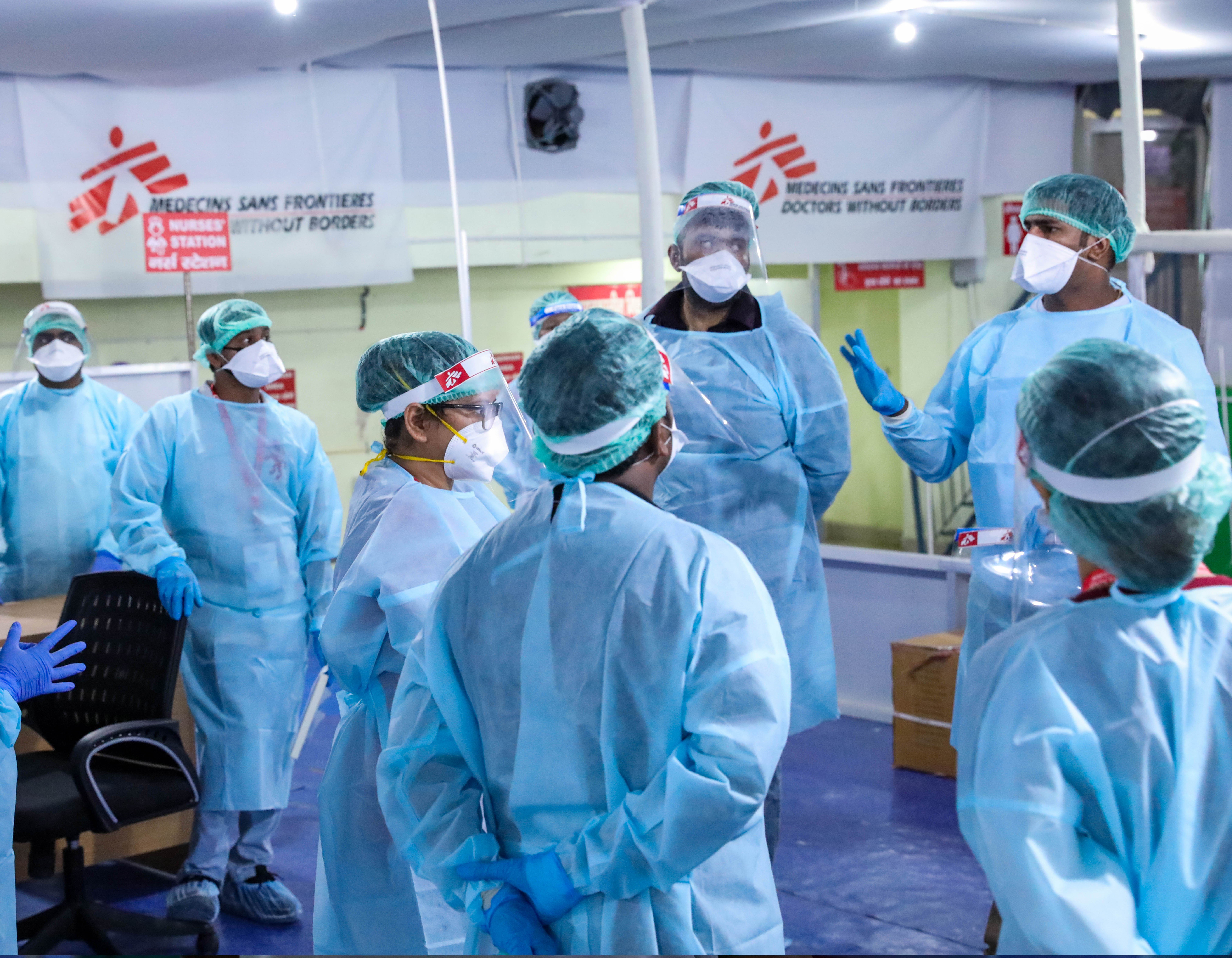Médecins Sans Frontières opens 100-bed COVID-19 treatment centre in Bihar, India
Patna/London - As the number of confirmed COVID-19 cases continues to rise in India, Médecins Sans Frontières (MSF) / Doctors Without Borders today opened a 100-bed temporary treatment centre for COVID-19 patients in Patna, the capital of Bihar state in the northeast of the country.
The MSF COVID-19 treatment centre is housed in the remodelled Patliputra Sports Complex in Patna Indoor Stadium. Fully managed by MSF, it will initially provide medical care to patients with mild or moderate symptoms to support the isolation of confirmed COVID-19 cases, and reduce community spread.
As the pandemic evolves, and oxygen demand outstrip existing supplies, the focus will switch to providing high-flow oxygen to moderate-severe cases, and dignified palliative care to those who require it. MSF is collaborating with the Bihar government and health authority, which will refer patients to the facility. This will decongest dedicated government-run COVID-19 treatment hospitals and allow them to focus on severe-critical cases.
With 180 MSF staff, the centre will also offer inpatient care, health education, mental health support and access to all essential drugs and medical supplies needed to manage moderate cases.
“Responding to emergencies is at the core of what MSF does,” said Dr. Prince Mathew, MSF’s Regional Head of Mission Asia. “We are putting our knowledge and experience in epidemic management to help mitigate the impact of COVID-19 in Bihar state.”
“This pandemic affects us all. For this reason, the response needs teamwork. Our partnership with the local health authorities enables us to increase treatment capacity, reduce mortality and prevent infections in the state.”
The number of confirmed recorded cases of COVID-19 in India has reached over 380,000 as of 19 June. Restrictions on the movement of people, in place since early March, have lessened over the last few weeks in many areas but cases are expected to continue to rise. Some areas of the country are seen as hotspots or particularly vulnerable to outbreaks, such as Bihar, which has seen millions of people returning to the state from work in other parts of India.
“In these times when the world is grappling with a pandemic, it is essential for all stakeholders to work together and fight this battle against COVID -19, said Mangal Pandey, Health Minister, Bihar.
“This initiative by MSF to open a temporary hospital to provide free treatment to COVID – 19 positive patients in Patna is an excellent example of how every contribution counts and the Bihar government wholeheartedly supports their work.”
The state of Maharashtra currently has the highest number of recorded COVID-19 cases in India. MSF has started activities in Mumbai’s Govandi area to address transmission of the coronavirus and improve water and sanitation facilities and in the coming weeks will begin operations to treat COVID-19 patients.
For more information on MSF’s response to COVID-19, and their increased efforts to protect access to healthcare in their programmes around the world, please click here.
About MSF in India
MSF is an international, independent, medical humanitarian organisation that delivers emergency aid to people affected by armed conflict, epidemics, natural disasters and exclusion from healthcare in over 70 countries. MSF offers assistance to people based only on need and irrespective of race, religion, gender or political affiliation. MSF has been working in India since 1999, providing free-of-charge essential healthcare in Andhra Pradesh, Bihar, Chhattisgarh, Delhi, Jammu & Kashmir, Jharkhand, Maharashtra, Manipur, Telangana, and Uttar Pradesh. MSF received the Indira Gandhi Prize for Peace, Disarmament and Development in 1996 and the Nobel Peace Prize in 1999.
MSF has a long history of humanitarian medical work in Bihar over the last 10 years including in Darbhanga district for Malnutrition, Hajipur for Kala Azar. Currently in Patna, MSF runs a treatment ward at the Guru Gobind Singh Hospital for the treatment of Advanced HIV patients with severe complications.
.jpg)
.jpg)
.jpg)
.jpg)
.jpg)